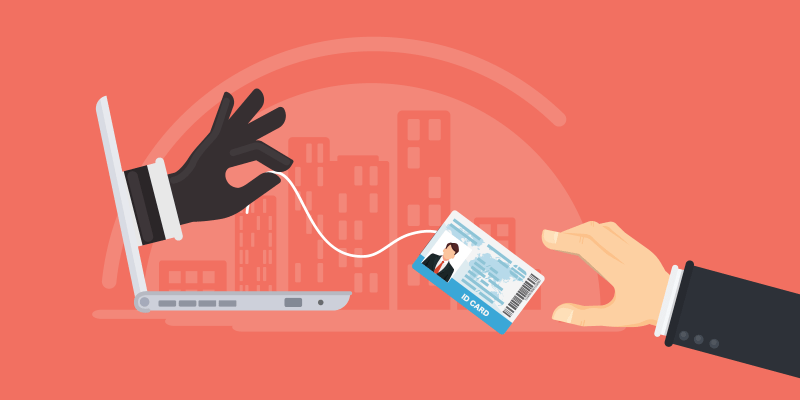Every year, millions of Americans fall victim to identity theft, suffering losses that total tens of billions of dollars. Identity theft occurs when someone obtains your personal information through fraud, deception, or theft and uses it to unlock and abuse your finances. One thing is evidently clear: Identity thieves are ingenious, and their impact has grown with the advent of the World Wide Web. These thieves obtain credit cards, bank loans, and checking accounts to make big purchases using your established credit.
Frustrated consumers can spend weeks, months, and even years trying to undo the damage. This damage can lead to lost job opportunities or being denied a loan because of negative information on their credit report. They can even be arrested for crimes they didn’t commit. The worst part is, these victims lose their good names. Don’t lose yours. Learn how to protect yourself against identity theft.
Carry Less
Reduce the number of credit cards you carry. Never carry your social security card, passport, or birth certificate except when needed. If you like to leave all of your personal items in one place, never leave them in your purse or wallet. Leave all of these important documents, bank statements, and additional credit cards in a lockbox at home. When using a credit or debit card at a restaurant, never leave your receipt as a paper trail for identity theft thieves.
Protect Your Personal Information
Never give out personal information over the phone, by mail, or over the internet unless you have an ongoing personal relationship with that individual and/or company and have also initiated the action. Thieves are known to be very tactical when it comes to the manipulation of people over the phone and via email by tricking individuals into giving them their bank account information. Always ensure the individual you’re speaking to is legitimate if you were to give out this type of information. Be sure to shred all your financial documents and any mail that contains personal information before discarding them. Some thieves have been known to go through garbage cans and dumpsters for financial information.
Be Sure to Protect Your Computer and Email
Install a firewall on your home computer to prevent hackers from getting into your system. Further, you can purchase encrypted email protection from firms such as VeriSign, or Thawte that will assure that only people with who you send emails to are the ones that can open them. It’s also a good idea to create long and difficult logins and passwords so it’s difficult for thieves to decode them. Finally, install and update virus protection software such as Norton Internet Security or McAfee Internet Security to prevent worms or viruses from forcing your computer to transmit private information to others. Comodo offers free firewalls and virus protection at their website, www.comodo.com.
Password Safety
Change your passwords often and remember to never share them or leave them lying around. Never use the same password for all your accounts. If a website is hacked and your password is exposed, thieves may try using that same password for other accounts. Make your passwords random, including capitalized letters, numbers, and special characters. Don’t make it easy for someone to hack into your personal accounts. Enabling two-factor authentication for your online accounts leaves you more protected by requiring you to also type in a one-time code received on your mobile phone.
Protect Yourself from Phishing
Scammers use email or text messages to trick individuals into giving them their personal information. Phishing emails and text messages may look like they’re from a company you know or trust. In order to protect yourself from phishing, set software updates to update automatically, protect your accounts by using multi-factor authentication, and protect your data by backing it up on an external hard drive or cloud storage. If you get a phishing email trying to trick you into clicking a link or opening an attachment from a source you are not familiar with, report the phishing attach to the FTC at www.reportfraud.ftc.gov.
Opt Out
Opt out of marketing lists of the three credit reporting bureaus: Equifax, TransUnion, and Experian. This will cut down on the number of pre-approved credit offers you will receive in your mailbox, which identity theft love to grab. Call (888) 567-8688 or visit www.optoutprescreen.com.
The bottom line is that identity theft is a serious and very prevalent problem, but it doesn’t have to happen to you. By safeguarding your information and monitoring your accounts, your identity will likely stay where it belongs – with you.
At Bridgelight Financial Advisors we make it one of our top priorities to ensure our clients are prepared for and protected from identity theft. If you are in need of a financial advisor that specializes in helping you make your retirement a successful one, our team at Bridgelight Financial Advisors would love to help you experience confidence in every aspect of your financial plan. Call (203) 795-7080, email [email protected], or schedule an appointment online to meet and get started.
About Bill
Bill Leavitt is the president of Bridgelight Financial Advisors, an independent, privately owned fiduciary financial advisory and financial planning firm. He specializes in working with pre-retirees, retirees, professionals, and women investors, helping them navigate a complicated and ever-changing investment landscape. With over 25 years of experience, Bill serves his clients using his own unique financial planning model, The Wealth Focus™ Process, where he helps clients develop their customized long-term wealth strategy in four comprehensive steps. A Connecticut native, Bill resides in southern Connecticut with his wife, Laura, and their three daughters. To learn more about Bill, connect with him on LinkedIn.
